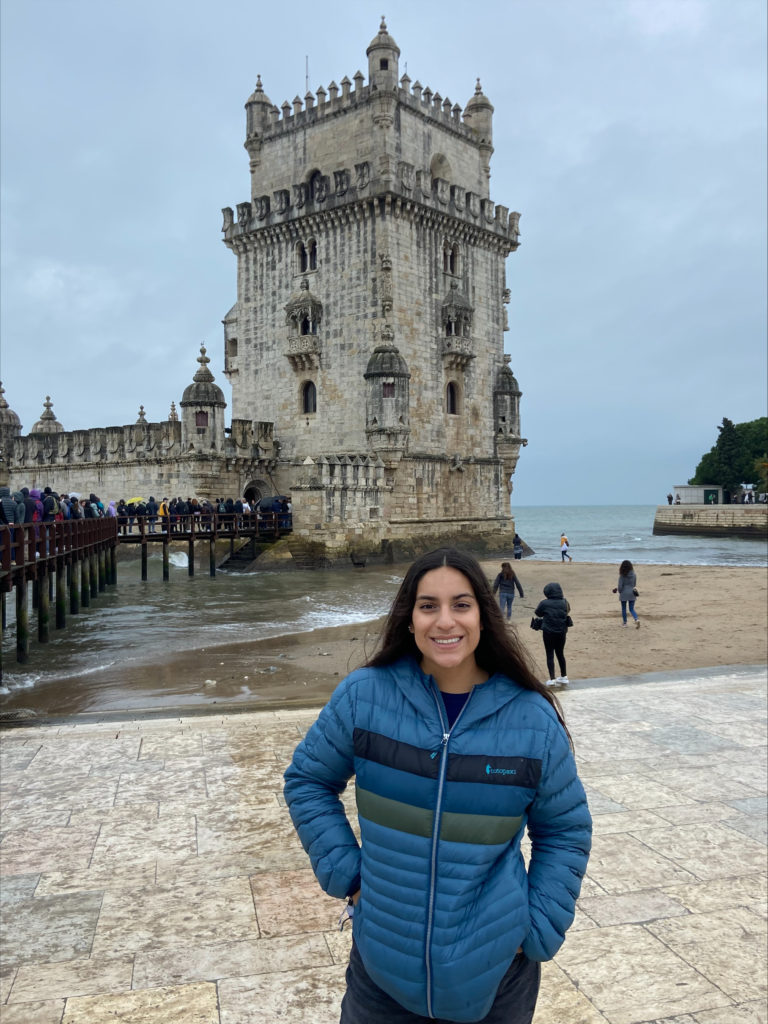by Victoria Alarcon Macias
These reflections on multilingual practices are part of a cumulative project from Kathleen Guerra’s Spring 2023 ASEM: The politics of bilingualism in the US. Students were asked to reflect on how multilingual practices, coupled by the formal and informal language policies in their communities, have cumulatively shaped their identities.
Spanish was the language I remember learning first. At home Spanish was the only language we would speak; I remember learning to say my twin brothers name Gabriel and struggling to pronounce it and just calling him Yeyel. He’d do the same calling me tory because Victoria was also hard to pronounce. I started listening to English when my teacher Anna would visit us at home, we’d paint, and she’d read us English books while my mother was at work. Anna would only speak English to us which was a great way that encouraged us to learn. When my grandma would visit from Mexico, I would always ask her to speak in English because I thought she was so good at it. Now that I think about it, she would only always say in a Spanish accent “Hello, how are you? I’m fine thank you; my name is Isaura.” I now teach her how to say much longer sentences because of how good I have gotten at English.
Although I grew up speaking Spanish there were always a lot of English influences, when we’d go to the store or the dentist my parents would change and speak English. My father impressed me once with his skills when we got stopped by the police because he ran a red light. They let him go with no punishment, but I know if he didn’t speak English the experience would have been a lot different. Some other moments that I remember are the student teacher conferences. My teacher would always want me to translate, and I would be embarrassed when she’d tell me “Victoria can you tell your mom that you have very good grades, but you talk a lot in class and distract other students.” Here I was telling my mom word by word what a rebellious student I was in Spanish. This comment would happen so often that my mom already knew what “she talks a lot” meant or “she’s distracting.” Which was a good thing because it saved me from the embarrassment. Another place I would find myself translating English was anytime I was at the dentist or doctors’ office. I remember tippy toing over the countertop at the dentist office having a full conversation with the secretary and my mom. Dijo la señora que me van a sacar el diente, “the lady said they are taking my tooth out.” These conversations would happen all the time and I remember feeling annoyed that I had to be a part of them. I was never annoyed at my mother or father but to the fact that nobody spoke my language.
When I was in high school, I got a lot better in translating for my parents. Although I would still ask my brothers como se dice “how do you say” or use Spanglish I was still able to translate conversations. I realized that I shouldn’t be the one who needs to translate for my parents in healthcare. Even though it is annoying, and I don’t enjoy it I will always be there to help in translation with anyone in need. This is not always the right decision because I am not a certified medical translator, language is essential to the safety and wellbeing of people, and it should be a priority. When I tore my shoulder in 11th grade and my ACL my senior year, I had to explain to my parents the procedures the doctors were going to do to me in detail. I found myself struggling in translation I couldn’t find the right words. We then asked for a translator and the doctor was able to provide us with one in person, so we met someone online. The connection with the doctor online was special, as they told my parents what the procedures were going to be. Towards the end of the consultation my parents couldn’t express enough their gratitude towards the interpreter wishing it was him doing my surgery.
Language has played a significant role in my upbringing and continues to shape my experiences today. Growing up speaking Spanish at home and gradually learning English through various interactions, I witnessed the power and importance of language in different contexts. From struggling to pronounce my twin brother’s name to translating important medical information for my parents, translation challenges have highlighted the need for certified professionals in crucial situations. While I may have served as a bridge between languages for my family, I recognize the significance of qualified translators and interpreters in ensuring effective communication, safety, and well-being for all individuals. Spanish holds a special place in my heart, as it represents my culture and reminds me of home. Like any other language, it is crucial for individuals to be able to communicate in the language they feel most at ease with. Language proficiency should be valued, and proper translation services should be prioritized to uphold the rights and understanding of diverse communities.

